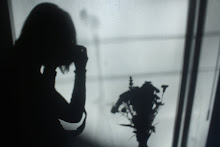 What’s Right with Writing By: Linda Rief
What’s Right with Writing By: Linda RiefI look forward to the writing being built up in me. But more than a writer, I am a teacher and so this class is primarily a way for me to infuse writing into the work I do everyday. I want to create an infectious environment for writing in my classroom. These articles have been very helpful and informative but there is a piece missing that is essential in the community I work. Relationship.
My kiddos are not fighting to make their mark on the world. They don’t necessarily want to achieve wealth, fame or even enormous success in a career field. They want relationships. They value relationships and the community they live in holds tight to relationships. Many of my students would willingly give up their right arm to make sure they never lose that relationship and too often education is that arm. (This is not to suggest the community desires low aspirations for the kiddos--quite the opposite is true.)
This understanding has spurred on the idea that when I provide writing for my students, the end result needs to be relational.
“learning how to be memoirists, poets, essayists, journalists, playwrights, activists, speechwriters, novelists, critics, scientists, historians…” Linda Rief
This quote inspires me to want to achieve great things. To move mountains and land on the moon but these ideas will likely not be much to my kiddos. But that does not mean I want it lost for them.
The process of this reflection has brought me to the idea that most of the publishing that happens in my class needs to have a local connect. Letters to the editor on important topics, pen-pals, newspaper articles related to school or perhaps tribal events, poems that reflect change students want to see or change they hope never happens, stories that bring the outside world in connection to the small community my kids live in. These ideas and more are near enough for my students to embrace.
I want to take the concepts that Linda Rief offers and make them local and tangible to my students. If they can connect to these writing pursuits on a nearby level then they can always take a step further and eventually be a global writer.







